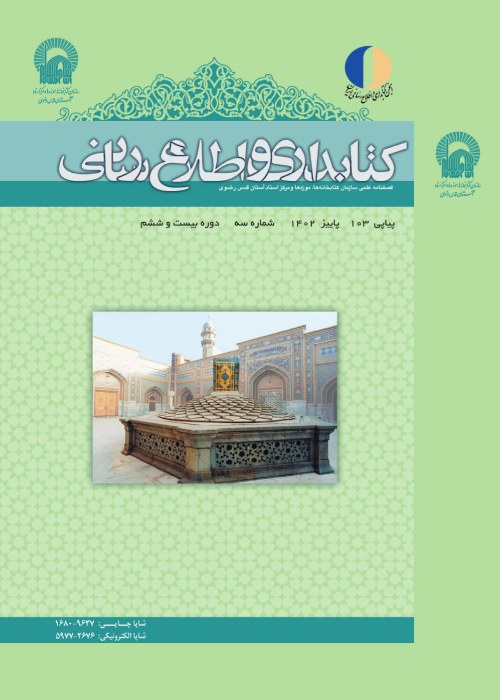Identification of Knowledge Audit Components from the Perspective of Experts: A Delphi Study
To better understand the flow of knowledge throughout organizations (of any type) and to answer the questions such as what knowledge does the organization need, where is that knowledge, how is it used, what knowledge problems exist and what improvements can be made, you should take advantage of the first step in knowledge management, which is "knowledge audit". The present research was conducted in order to identify the components of knowledge audit.
This research was carried out under the positivism paradigm. In order to collect information, library and field methods have been considered. First, knowledge audit components were obtained by Delphi method. Then, to compare these components, data were collected through AHP questionnaire. Questionnaire was distributed among faculty members and doctoral students of Knowledge and Information Science of Tehran state universities and AHP method was used for data analysis. In order to analyze the data, MAXQDA, SPSS 25 and Expert Choice11 software were used.
The findings obtained in this research show that the components of knowledge audit include the component of identifying organizational repositories, which includes the items of knowledge discovery, knowledge storage, knowledge registration, knowledge inventory development, and map creation. Knowledge includes the items of map drawing, prioritizing knowledge, linking knowledge, organizing knowledge, identifying knowledge flows including items of knowledge identification, identifying knowledge strategies, identifying knowledge processes, identifying the discovery of knowledge sharing, human knowledge capital including The items of knowledge, skills, competencies of the organization's employees and managers, the knowledge audit team including the items of knowledge analysts, Strategy experts, organization planners, knowledge consultants, analysis and evaluation including knowledge health assessment items, gap analysis, use of knowledge, knowledge risk analysis including items for identifying potential risks, adopting appropriate solutions, educational dimensions and aspects including the subjects of holding training courses in the field of knowledge audit, holding publications and conferences in the field of knowledge audit, organizational culture including the subjects of attention to values and norms, attention to innovation, attention to organizational goals, The environment of the organization. These ten components were ranked according to their importance: The first priority is the identification of organizational repositories, the second priority is the creation of a knowledge map, the third priority is the identification of knowledge flow, the fourth priority is the identification of knowledge flow, the fifth priority is human knowledge capital, the sixth priority is knowledge audit team, the seventh priority is analysis and evaluation, the eighth priority is knowledge risk analysis. The ninth priority was assigned to educational dimensions and aspects, and the tenth priority was assigned to the component of organizational culture.
By focusing on the example of identifying knowledge reservoirs, drawing a knowledge map and identifying knowledge needs, a big step can be taken towards the realization of knowledge audit in the organization.
- حق عضویت دریافتی صرف حمایت از نشریات عضو و نگهداری، تکمیل و توسعه مگیران میشود.
- پرداخت حق اشتراک و دانلود مقالات اجازه بازنشر آن در سایر رسانههای چاپی و دیجیتال را به کاربر نمیدهد.




